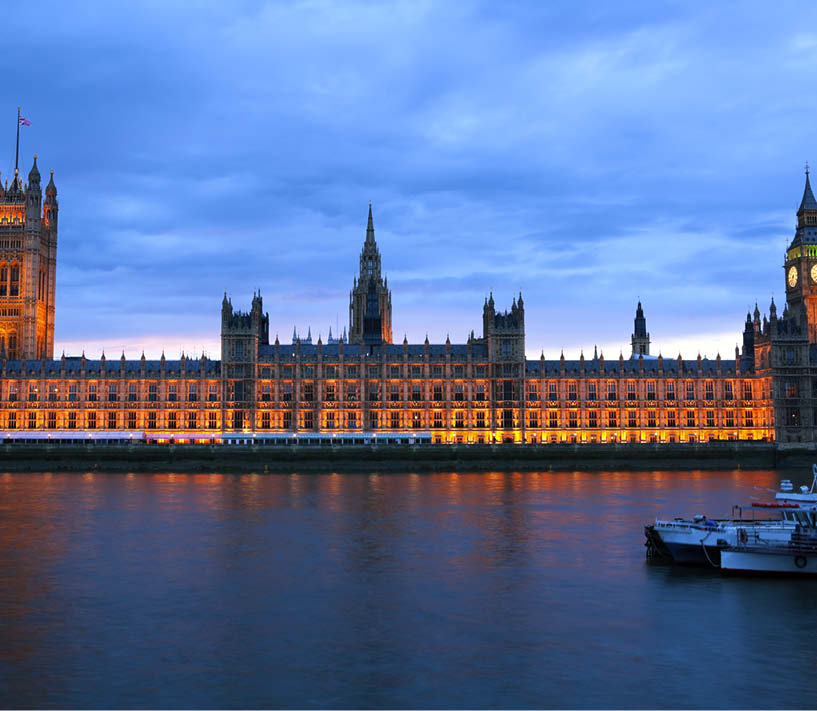-
Business Risk Services
Our Business Risk Services team deliver practical and pragmatic solutions that support clients in growing and protecting the inherent value of their businesses.
-
Corporate Finance and Deal Advisory
We offer a dedicated team of experienced individuals with a focus on successfully executing transactions for corporates and financial institutions. We offer an…
-
Economic Advisory
Our all-island Economics Advisory team combines expertise in economics and business with a wealth of experience across the public and private sectors.
-
Forensic Accounting
We have a different way of doing business by delivering real insight through a combination of technical rigour, commercial experience and intuitive judgment. We take…
-
People and Change Consulting
The Grant Thornton People & Change Consulting practice works with clients on these issues as well as on all aspects of how they attract, retain, engage develop, deploy and…
-
Restructuring
We work with a wide variety of clients and stakeholders such as high street banks, private equity funds, directors, government agencies and creditors to implement…
-
Technology Consulting
Motivating and assisting our clients to pursue, maintain and secure the benefits of digital solutions is at the core of our Digital Transformation teams' agenda and goals. We…

-
 Audit and Assurance FRS 102 Periodic Review Series – Other changesOn 27 March 2024, the Financial Reporting Council issued amendments to FRS 100 – 105 (known as GAAP, or Generally Accepted Accounting Practice), a suite of accounting standards applicable in the UK and Ireland. These are used by an estimated 3.4 million businesses in preparing their financial statements.
Audit and Assurance FRS 102 Periodic Review Series – Other changesOn 27 March 2024, the Financial Reporting Council issued amendments to FRS 100 – 105 (known as GAAP, or Generally Accepted Accounting Practice), a suite of accounting standards applicable in the UK and Ireland. These are used by an estimated 3.4 million businesses in preparing their financial statements. -
 Audit and Assurance ID Verification: Economic Crime & Corporate Transparency Act 2023Companies House is introducing mandatory identity verification requirements for Directors and People with Significant Control (PSCs), as the next step towards full implementation of the Economic Crime and Corporate Transparency Act 2023.
Audit and Assurance ID Verification: Economic Crime & Corporate Transparency Act 2023Companies House is introducing mandatory identity verification requirements for Directors and People with Significant Control (PSCs), as the next step towards full implementation of the Economic Crime and Corporate Transparency Act 2023. -
 Audit and Assurance FRS 102 Periodic Review Series – Accounting for LeasesOn 27 March 2024, the Financial Reporting Council issued amendments to FRS 100 – 105 (known as GAAP, or Generally Accepted Accounting Practice), a suite of accounting standards applicable in the UK and Ireland. These are used by an estimated 3.4 million businesses in preparing their financial statements.
Audit and Assurance FRS 102 Periodic Review Series – Accounting for LeasesOn 27 March 2024, the Financial Reporting Council issued amendments to FRS 100 – 105 (known as GAAP, or Generally Accepted Accounting Practice), a suite of accounting standards applicable in the UK and Ireland. These are used by an estimated 3.4 million businesses in preparing their financial statements. -
 Article Changes to company size thresholds in the UKOn 10 December 2025 the UK Government laid The Companies (Accounts and Reports) (Amendment and Transitional Provision) Regulations 2024, which will take effect on 6 April 2025.
Article Changes to company size thresholds in the UKOn 10 December 2025 the UK Government laid The Companies (Accounts and Reports) (Amendment and Transitional Provision) Regulations 2024, which will take effect on 6 April 2025.
-
Corporate and International Tax
Northern Ireland businesses face further challenges as they operate in the only part of the UK that has a land border with a country offering a lower tax rate.
-
Employer Solutions
Our team specialises in remuneration and incentive planning and works closely with employers, shareholders and employees to ensure that business strategies are…
-
Entrepreneur and Private Client Taxes
Our team of experienced advisors are on hand to guide you through any decision or transaction ranging from the establishment of new business ventures, to realising…
-
Global Mobility Services
Grant Thornton Ireland offer a different approach to managing global mobility. We have brought together specialists from our tax, global payroll, people and…
-
Outsourced Payroll
Our outsourced service provides valued service to over 150 separate PAYE schemes. These ranging from 1 to 1000 employees, working for micro, SME and global…
-
Tax Disputes and Investigations
Our Tax Disputes and Investigation team is made up of tax experts and former HMRC investigators who have years of experience in dealing with a variety of tax…
-
VAT and Indirect Taxes
At Grant Thornton (NI) LLP, our team helps Northern Ireland businesses manage their UK and global indirect tax risks which, as transactional taxes, can quickly…


It has been a while since I needed to do this but I was reminded of it in recent weeks as I saw media images of various politicians, fully suited, turning up to show support for the Tigers Bay bonfire. The image of fully be-suited political leaders visiting bonfire sites struck me, not just for the awkwardness I think it conveyed, but as a symbol of a detachment that exists between those ‘on the hill’ and those ‘on the ground’. It is an issue that has been nagging at me for some time. I touched on it in my last article when I noted that the economic challenges NI faces today are the same economic challenges that we’ve faced for decades, and nothing seems to really improve. Our economic strategies and the multi-million pound growth deals which have been hailed as ‘game changing’ are all heavily weighted towards investing in things like centres of excellence in ‘high value added’ activity or tourism infrastructure. All the while, deprivation remains stubbornly and unacceptably high and economic inactivity levels barely shift.
In fact, the newly published social mobility report from the Social Mobility Commission concludes how ‘there are specific, persistent and often intractable challenges in improving social mobility in Northern Ireland. While the Troubles may have ended, many problems remain, including high levels of community division, social deprivation and economic inactivity, over-reliance on public sector employment, and a shortage of social housing. These challenges have been exacerbated by several specific circumstances, most notably the collapse of the Northern Ireland Executive and devolved legislative Assembly from January 2017 to January 2020, and the post-Brexit Northern Ireland Protocol, which has created new bureaucratic challenges for Northern Ireland businesses trading with the rest of the UK. The COVID-19 pandemic has clearly further compounded existing challenges. This will have a profound impact on social mobility, as evidenced in education and employment in particular, with the young and economically disadvantaged disproportionately affected.’ Given this, it is perhaps worth reminding ourselves of the some of the data we have on deprivation.
The last time deprivation statistics were released was in 2017 and while these are getting a bit dated, it doesn’t take much looking around to be confident that the data holds true. The deprivation statistics cover seven factors of deprivation including Income, Employment, Health and Disability, Education, Skills and Training, Access to Services, Living Environment and Crime and Disorder across 890 geographic areas. Belfast West, Foyle and Belfast North are the top three most deprived parliamentary constituencies based on the proportion of their areas in the top 10 percent most deprived. 46% of Belfast West’s areas are in the top 10 percent most deprived. In Foyle and Belfast North it is 31.5% and 31% respectively. These places need to be ‘levelled up’ to use the current policy buzz phrase.
‘Levelling up’ essentially aims to redress the imbalances between deprived areas and non-deprived areas. We are increasingly familiar with it as Boris Johnson’s big idea which wants to see economic activity increase in less well-off parts of the UK. There was a big speech about it from Boris in the last week or so which prompted one Tory MP to describe levelling up as ‘an ambiguous phrase’ that ‘means whatever anyone wants it to mean’. Maybe that’s just as well given that the Prime Minister’s speech on the topic included a reference to ‘the magic sauce – the ketchup of catch-up’ when talking about the importance of leadership. Confused? Me too. In practical terms, there is the almost £5 billion levelling up fund, of which Northern Ireland will get some share. The initial focus of the fund is on Transport projects (such as new or existing cycling provision, enhanced public transport facilities or structural maintenance to local road networks); Regeneration and town centre investments (such as regenerating leisure and retail sites, removing derelict buildings or improving public high streets parks and green spaces); or Cultural investment (such as acquiring and refurbishing cultural heritage sites or upgrading or creating new cultural and creative spaces including sports facilities, art venues, theatres and libraries).
Update your subscriptions for Grant Thornton publications and events.
As a related aside, I got to hear about a really positive intervention in North Belfast this week that provides a positive view on our ability to level up. In an update from Ulster University on their new campus, I heard how, through outreach and engagement by the university into schools in North Belfast, university applications from one school which might traditionally have sent single numbers to university every year is now seeing upwards of 50 pupils going to university. This is the sort of outcome that concerted efforts in the right places can deliver.
Perhaps instead of repackaging pots of money that essentially get directed in the same way, we should spend more time listening to local need, working in the places that need the most help and breaking the awkward disconnect between politics, policy making and the real world.




